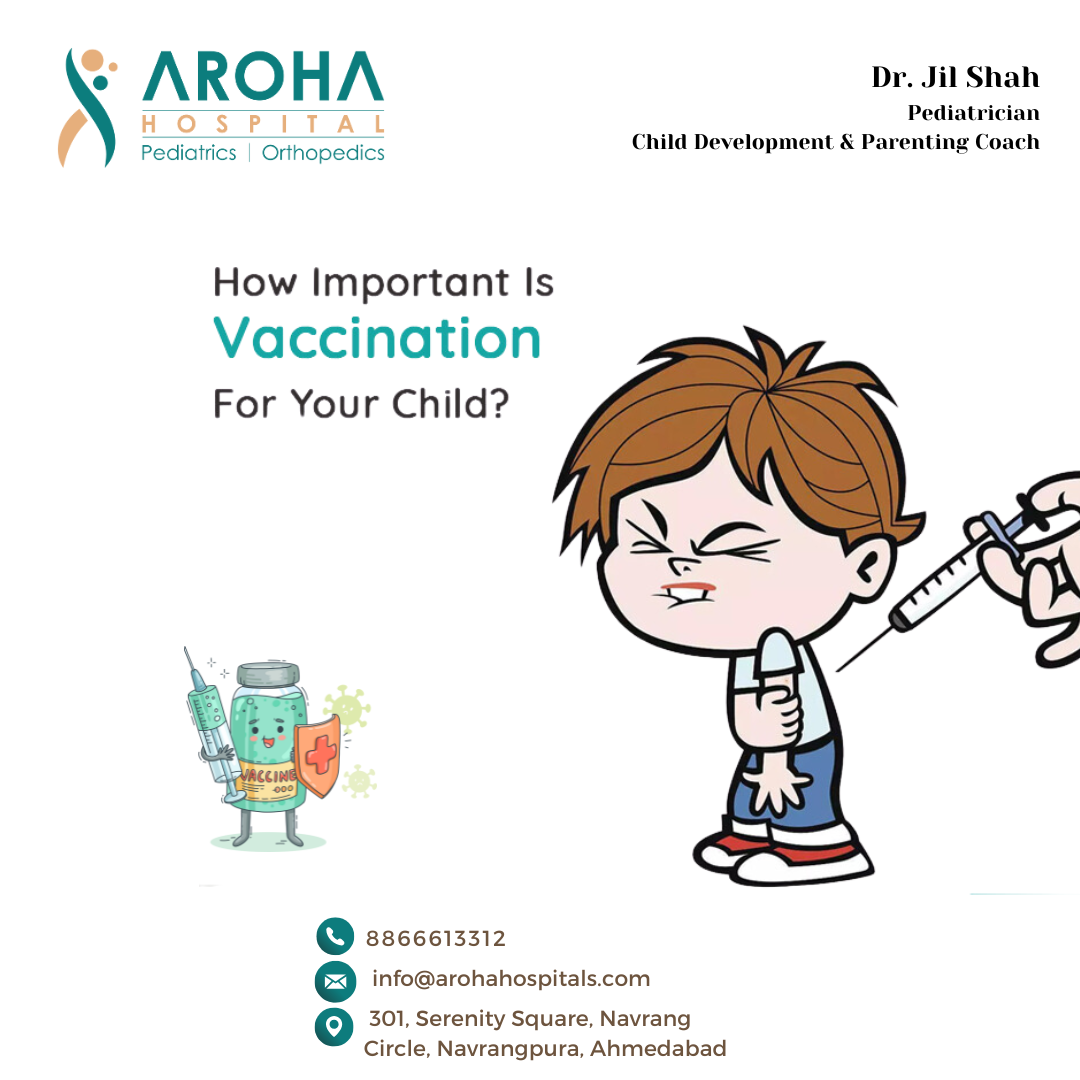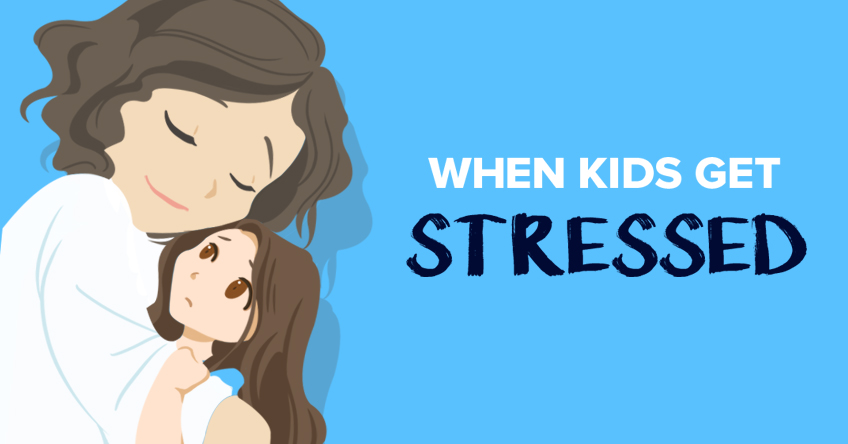Hello, I’m Dr. Jil Shah from Aroha Hospital, and I’m here to talk about one of the most effective health measures for children—vaccines. Vaccines have transformed child health by preventing diseases that once caused severe illness and even death. In this article, I’ll discuss why vaccines are critical, which ones are essential, and address some common misconceptions that can sometimes cloud the importance of immunization.
1. How Vaccines Protect Health Through Immunity and Herd Immunity
Vaccines work by introducing a safe version of a virus or bacteria—like a weakened or inactivated germ—into the body. This allows the immune system to "learn" how to recognize and fight the germ without the child actually contracting the disease. This immune memory remains in the body, ensuring that if the child encounters the disease in the future, their immune system can react swiftly and effectively.
Beyond protecting the individual, vaccines play a powerful role in what’s called herd immunity. When a large portion of a community is vaccinated, diseases have far fewer opportunities to spread. This indirectly protects those who are most vulnerable—such as newborns, elderly individuals, and those with compromised immune systems—who may not be able to receive certain vaccines themselves. By vaccinating children, we’re not only guarding their health but also contributing to a healthier, safer community for everyone.
2. Essential Vaccines for Children
Vaccination schedules are carefully crafted to protect children from diseases at the optimal time. Here’s a list of essential vaccines for children:
BCG (Bacillus Calmette-Guérin) for tuberculosis: Administered at birth in areas where TB is prevalent, protecting against severe TB infections.
Polio Vaccine: Polio was once a leading cause of paralysis in children; this vaccine, given as oral drops or injections, prevents it entirely.
Hepatitis B Vaccine: Given at birth, this protects against hepatitis B, a virus that can cause long-term liver complications.
DPT (Diphtheria, Pertussis, Tetanus): This combination vaccine protects against three dangerous bacterial infections—diphtheria, whooping cough, and tetanus.
MMR (Measles, Mumps, Rubella): This vaccine protects against three viral infections. Measles can lead to severe complications like pneumonia, while mumps and rubella can also have serious health impacts.
HIB (Haemophilus influenzae type b): Prevents infections like meningitis and pneumonia caused by H. influenzae bacteria.
Rotavirus Vaccine: Rotavirus causes severe diarrhea in infants, often leading to dehydration and hospitalization. This vaccine helps protect against it.
Pneumococcal Vaccine: Protects against pneumococcal bacteria, which can cause pneumonia, meningitis, and blood infections.
Typhoid Vaccine: Recommended for children in areas where typhoid fever is common, it prevents this serious bacterial infection that affects the digestive system.
Chickenpox (Varicella) Vaccine: This vaccine prevents chickenpox, which, while often mild, can lead to complications like bacterial infections of the skin, pneumonia, and encephalitis in some cases.
Hepatitis A Vaccine: Hepatitis A, a liver infection, is typically spread through contaminated food and water. The vaccine is especially important in areas where the virus is common.
HPV Vaccine: Given to pre-teens and teens, the HPV vaccine protects against human papillomavirus, a leading cause of cervical and other cancers.
Each vaccine is administered at specific ages for maximum effectiveness, helping children develop immunity at crucial stages of growth.
3. Dispelling Common Myths about Vaccines
Despite their benefits, vaccines are sometimes met with skepticism. Let’s debunk a few myths:
Myth 1: Vaccines cause autism. This misconception originated from a now-debunked study, and numerous studies since have shown no link between vaccines and autism. Health organizations like the CDC and WHO have thoroughly confirmed that vaccines are safe and do not cause autism.
Myth 2: Too many vaccines can overwhelm the immune system. Children encounter numerous pathogens daily; vaccines introduce only a small number of antigens. Their immune systems are well-equipped to handle multiple vaccines at once without becoming overwhelmed.
Myth 3: Natural immunity is better. While some believe getting sick naturally provides stronger immunity, it comes at a high risk. Many vaccine-preventable diseases can cause serious complications, hospitalizations, and even death. Vaccines provide safe immunity without exposing children to these risks.
The Role of Vaccines in a Healthier Future
Vaccines are among the safest, most effective ways to prevent disease and protect children’s health. Thanks to widespread vaccination, diseases like smallpox have been eradicated, and others like polio are nearly eliminated. By following the recommended vaccine schedule, you’re helping give your child the best start in life and contributing to a safer, healthier community.
At Aroha Hospital, we’re here to help you make the best health choices for your child. Let’s work together to ensure a brighter, healthier future for them and for everyone around us through vaccination.





